In pictures: Yemen devastation
See full photo collection on BBC News …
See full photo collection on BBC News …

The latest newsletter from our delegation in Sri Lanka features a variety of articles, including updates on our work in the country, the launch of a new programme, and facts and figures on our …
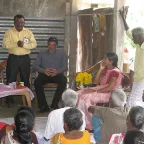
09-05-2015 Geneva/Juba (ICRC) - The ICRC is extremely concerned for the wellbeing of tens of thousands of people who have reportedly fled fierce clashes in South Sudan's Unity State in recent days. …
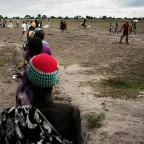
Over the past year, Sithembile Chiware, ICRC cooperation programme manager in Harare, Zimbabwe, has been deployed to three different countries to support National Red Cross Society emergency response …

As the Red Cross and Red Crescent Movement strives to reach remote areas that had been cut off by the devastating earthquake, the ICRC is concentrating on helping people discover the fate of their …
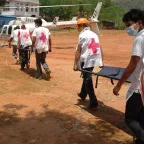
Jenneh and some of her 25 children. Jenneh Kaizolu (39) is an Ebola survivor from Paynesville, Monrovia. She lost her mother, brother and two sisters to Ebola. She is now taking care of 25 children: …
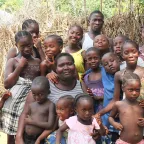
The Movement is an incredible force, especially when delivering aid to the most vulnerable people trapped in war. Increasingly, the ICRC and National Societies pool their resources to meet the …

On World Red Cross and Red Crescent Day, we launch a global conversation celebrating the 50th Anniversary of the International Red Cross and Red Crescent Movement's adoption of the Fundamental …
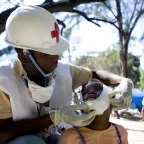
By Tadateru Konoé, President of the International Federation of Red Cross and Red Crescent Societies and Peter Maurer, President of the International Committee of the Red Cross Neutral and impartial …
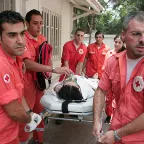
The 8 May is the World Red Cross Red Crescent Day. On this occasion, the International Red Cross and Red Crescent Movement launches a global conversation celebrating the 50th Anniversary of the …
Try one of the following resources:
Created in 1863, the ICRC library, alongside the ICRC archives, provides an indispensable documentary reference on the organization itself and international humanitarian law.
International humanitarian law is based on a number of treaties, in particular the Geneva Conventions of 1949 and their Additional Protocols, and a series of other instruments.
Customary international humanitarian law consists of rules that come from "a general practice accepted as law" and that exist independent of treaty law.